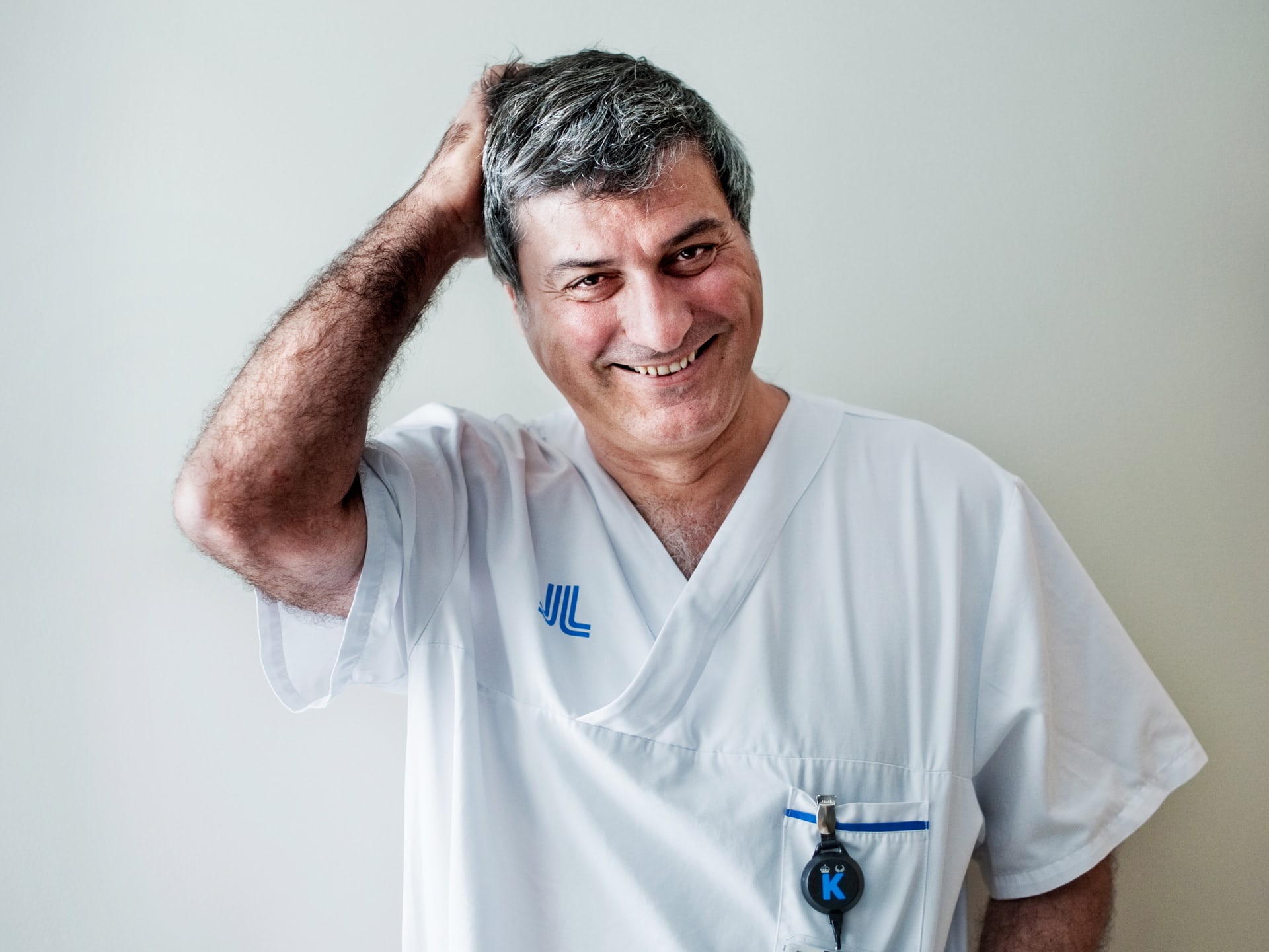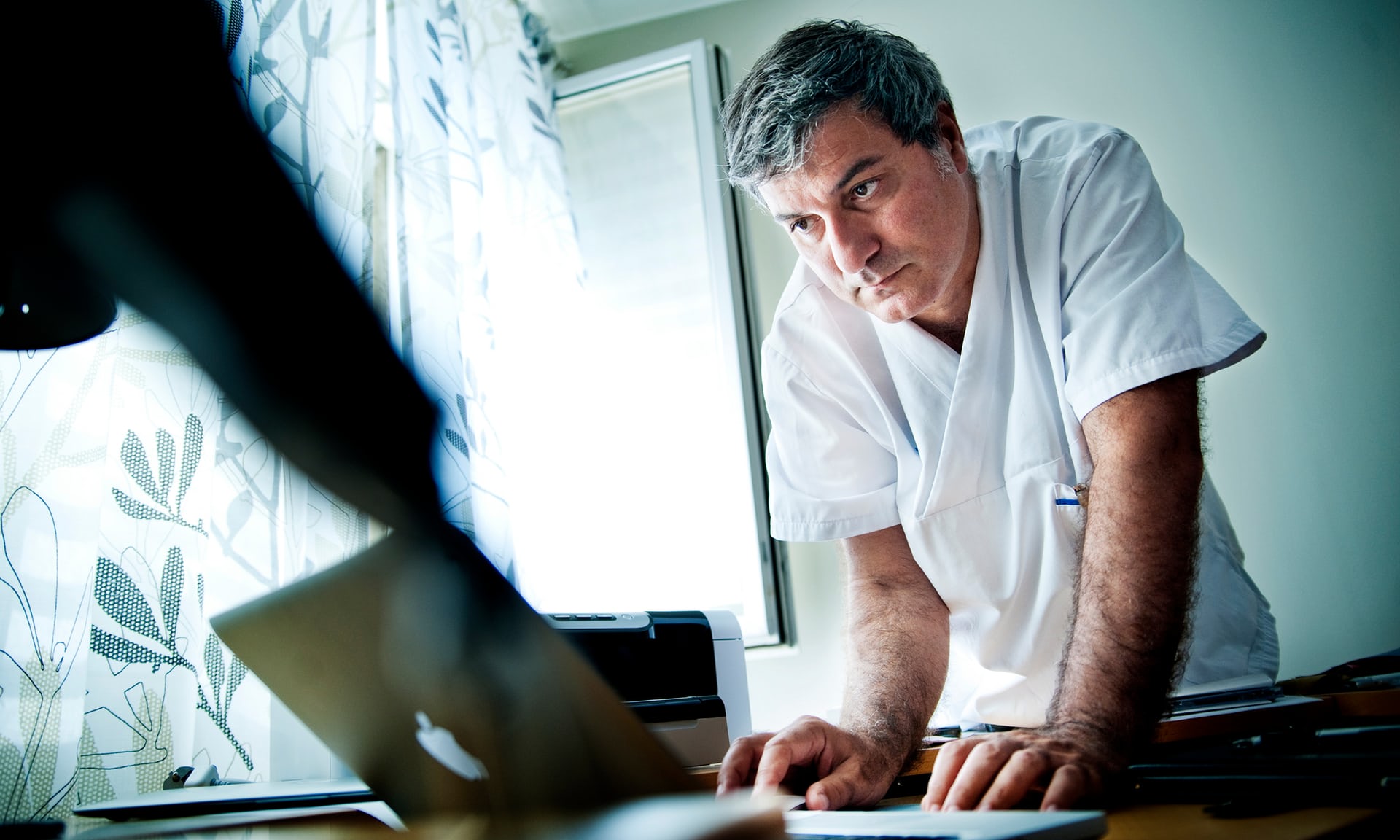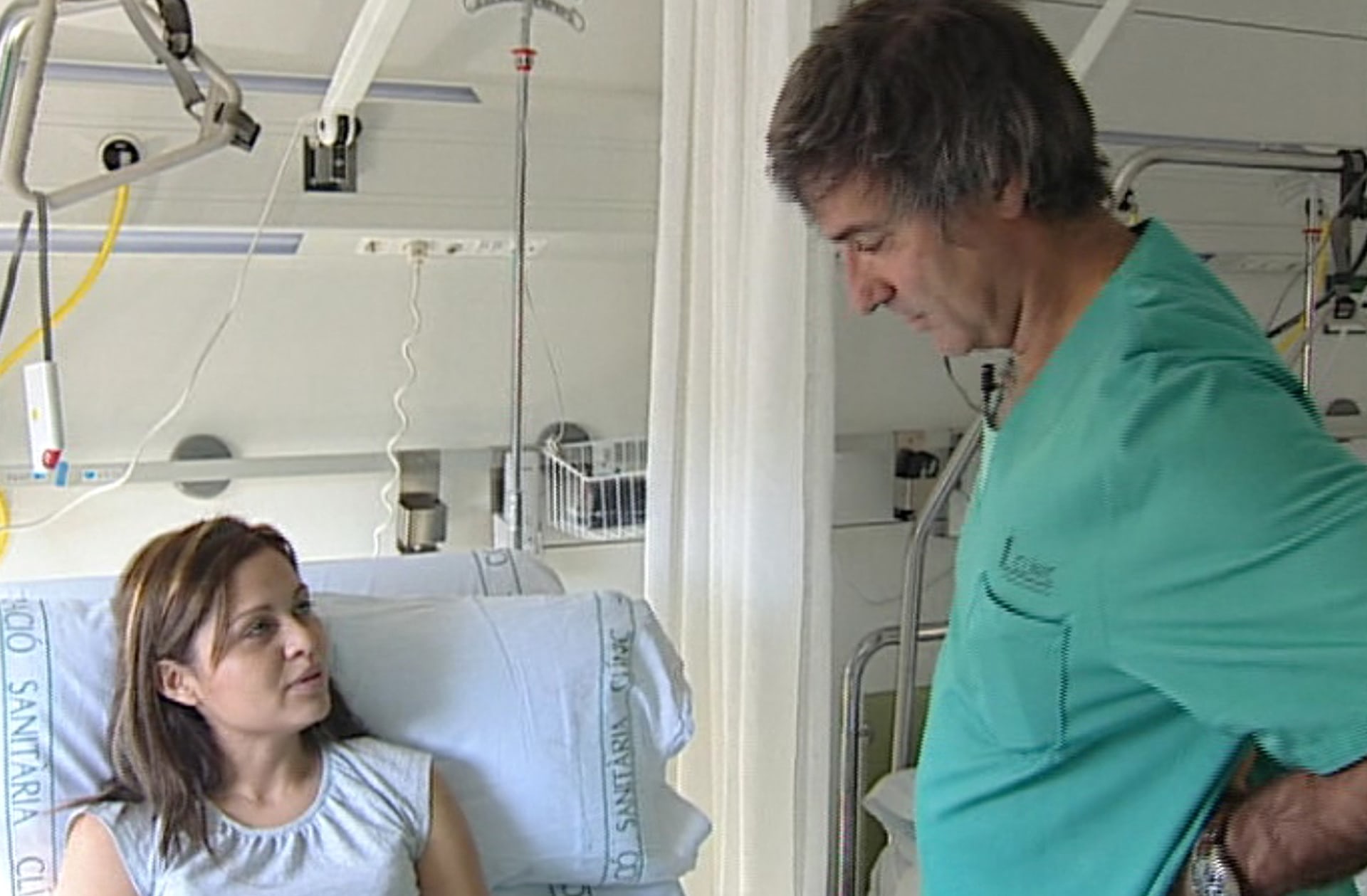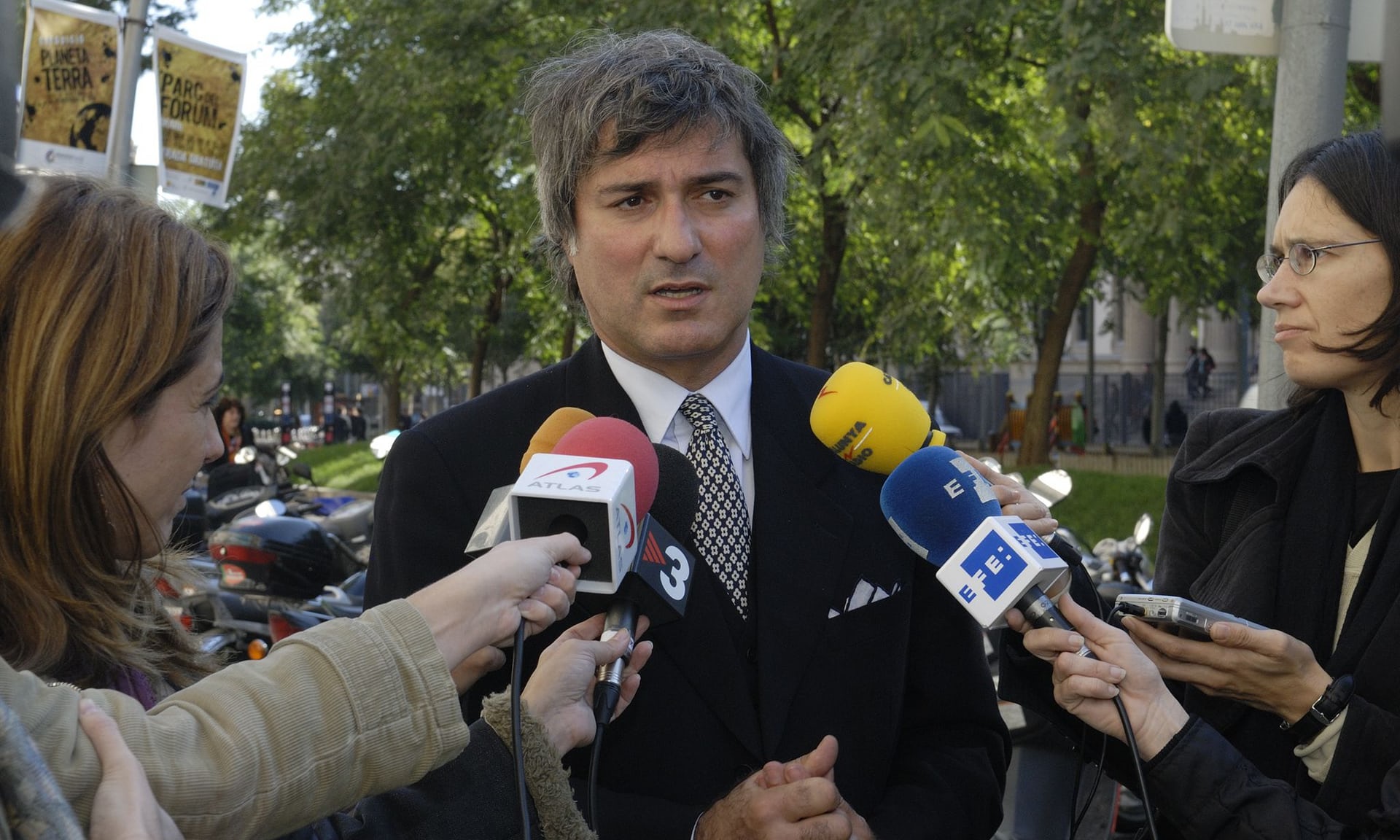Dr. Scam: the rise and fall of the famous scientist who has deceived almost everyone
Surgeon Paolo Macchiarini was praised for turning the dream of regenerative medicine into reality - until he discovered that he was a crook and a false prophet

The pioneer of science, the star surgeon, the wizard - under such epithets Paolo Macchiarini was known for several years. He looked like this, dressed in a white robe or in the clothes of a surgeon, with his broad, pretty face and ability to fascinate people. And he deceived almost everyone.
Macchiarini began the path to success in 2008 when he created a new trachea for Claudia Castillo, a girl from Barcelona. He chemically removed the cells from the trachea of the deceased donor, and seeded the naked framework with stem cells taken from the bone marrow of Castillo herself. She soon returned home and was able to run again with her children. According to Macchiarini and his colleagues, her artificial organ coped well with its role, worked and looked like a real one. And since it was created from Castillo's own cells, she did not need to use dangerous immunosuppressants .
This was Macchiarini’s first great success. Countless news articles have announced this as a medical breakthrough. They said that he saves lives and changes all medicine. Now we know that it is not. However, the serious complications from which Castillo suffered were hidden for quite a while.
And Macchiarini's career took off. By 2011, he worked in Sweden at one of the most prestigious medical universities in the world, the Karolinska Institute , whose professor annually selects the winner of the Nobel Prize in Physiology or Medicine. There he re-opened his technique. Instead of removing cells from the trachea of donors, Macchiarini made plastic frames for the order. His first was Andemariam Beyen, a graduate student in geology at the University of Iceland. His recovery brought Macchiarini to the cover of the New York Times.
Macchiarini turned the dream of regenerative medicine into reality. Here's how Meredith Vieira from NBC told about him in her documentary film titled “Leap of Faith”: “Imagine a world in which any damaged or diseased organ or part of your body can be replaced with a new, artificial, made in the laboratory especially for you.” And thanks to Macchiarini, this wonderful world was already on the threshold.
However, last year the dream turned bad, revealing an ugly reality.
Macchiarini set up “regenerative” tracheas for no less than 17 patients around the world. Most of them, including Andemariam Beyen, have died. Those that are still alive - including Castillo - have survived in spite of the artificial trachea established by him.
•••
In January 2016, Macchiarini was criticized by the press. First, an article appeared in Vanity Fair about his affair with Benita Alexander, the producer of NBC News, who had television awards. She met Macchiarini, producing "Leap of Faith", and soon broke one of the main rules of journalism: not to fall in love with the hero of his story.
By the time the program was released in mid-2014, the couple were already planning to get married. This event was supposed to take place with a lot of celebrities. Macchiarini often boasted Alexander to his famous friends. And now they were all on the guest list: the Obama couple, the Clinton couple, Vladimir Putin, Nicolas Sarkozy, and other world leaders. Andrea Bocelli was to speak at the ceremony. Pope Francis himself should have been engaged in worship, and his papal palace was to be the venue of the ceremony. So Macchiarini told his bride.

Macchiarini at work
But as this date approached, Alexander began to see the revelation of these plans and eventually realized that her lover had lied about almost everything. Dad, the palace, world leaders, the famous tenor - he invented it all.
Like the very idea of a wedding: Macchiarini was still married to his 30-year-old spouse.
Deception Macchiarini was so ridiculous that Vanity Fair turned to Harvard professor Ronald Schauten, a psychopathic expert who made the correspondence diagnosis: “Macchiarini belongs to an extreme type of trust-abusing fraudsters. He is obviously smart, he has achievements, but he does not control himself. There is a void in his personality that he is trying to fill, deceiving more and more people. ”
There was a big burning question in the air: if Macchiarini was a pathological liar in love, what about his medical research? Did he cheat on his patients, colleagues, and the scientific community?
The answer came just a couple of weeks later, when Macchiarini and his work were shown on Swedish television, in three parts.
In the film Experimenten (“Experiments”), it was convincingly shown that the artificial trachea Macchiarini were not life-saving miracles, as we were all convinced. On the contrary, they harmed more than they saved - and this Macchiarini hid for years, or minimized their harm in their articles, press releases and interviews.
Faced with such a public disaster, the Karolinska Institute immediately promised to investigate the charges, and then, a few days later, suddenly announced that he would not renew the contract with Macchiarini.
Macchiarini’s fall was quick, but questions remained about how he had been allowed to experiment for so long. Some replies were received after official requests made to the Karolinska Institute and the Karolinska University Hospital. They revealed many problems with how these organizations worked with Macchiarini.
Slava Macchiarini deserved him good patrons. Among them - Garriet Wahlberg, the former deputy head of the Karolinska Institute in 2010, when he hired Macchiarini. She dragged his appointment, despite the presence of very bad reviews and dubious statements in the resume.
This became a dangerous example, and made it clear to the heads of departments of the institute and colleagues that Macchiarini required special treatment.
He could do almost everything he wanted. For the first couple of years at the Karolinska Institute, he implanted plastic tracheas for three patients. Since this procedure was radically new, it first had to be tested on animals. But Macchiarini and his colleagues did not.
They also did not properly assess the possible risks of this procedure, did not receive permission from the government to manufacture plastic trachea, the use of stem cells and chemical growth stimulants. They did not receive the approval of the Stockholm Ethics Commission, based at the Karolinska Institute.
And although Macchiarini was in plain sight, he managed to circumvent the usual rules and procedures. Or, more precisely, his star status helped him in this. The leadership of the institute expected great results from its superstar, such that will increase prestige and increase funding.
They also clutched at the concept of "using out of compassion." They claimed that Macchiarini did not conduct clinical trials, but simply was very worried about his patients, who were threatened with certain death in the absence of time and other treatment options. And in such difficult circumstances, new treatment options can be used as a last resort.
But this argument has not passed with the people who conducted the investigation of this case. From their point of view, Macchiarini conducted the most current clinical research. In addition, a sense of compassion does not negate the basic principles of patient safety and informed consent. Macchiarini replies that he "does not accept" the conclusions of the disciplinary committee.
•••
It turns out that Macchiarini patients were not at all on the verge of death at the moment when he treated them. For example, Andemariam Beyena had recurrent tracheal cancer, but nothing bothered him except coughing. But even if his days were numbered, this did not justify what Macchiarini had forced him to go through.
Beyen's death two and a half years after the operation due to the failure of the artificial trachea was severe. According to Pierre Delaere, professor of respiratory surgery at the Catholic University of Leuven in Belgium, Macchiarini’s experiments were doomed to a sad end. As he says in Experimenten: “If I chose between synthetic trachea and the firing squad, I would choose the latter, since this would be a less painful version of the execution.”

Claudia Castillo with Dr. Macchiarini
Delaere was one of the first and harshest critics of the artificial trachea Macchiarini. Reports of their success, he always considered "idle chatter." He did not see any real evidence that the tracheal cages became living, functioning organs - and in this case they were doomed to failure. The question was only in terms - weeks, months, or several years.
Delaere criticism appeared in major medical journals, including Lancet, but was not taken seriously by the leadership of the Karolinska Institute. She was not impressed with the ethical advice of the institute, when Delaere filed a formal complaint.
Macchiarini was actively supported even after his patients began to die. In particular, this was because the recovery of the trachea was a niche area. Few people at the Karolinska Institute, especially of the decision makers, knew this enough to evaluate Delaere’s statements. In addition, in such highly competitive areas, people tend to be loyal to their superiors and reluctant to criticize him. The official report on this effect was entitled “the effect of the winning [election] side”.
Given the feats of Macchiarini, encouraged by management and aspirated in the media, it was very easy to join the camp of his fans.
And it is very difficult to jump from this platform. In early 2014, four doctors from the Karolinska Institute broke the silence and filed a complaint against Macchiarini. From their point of view, he very ugly distorted the results of his work and the state of health of his patients. An independent researcher agreed with them. But the vice-president of the institute, Anders Hamsten, was not satisfied with this. He officially dropped accusations of negligence with Macchiarini, leaving only the remark that he sometimes allowed himself to act "without due caution."
For an attempt to push a surgeon, four doctors were punished. When Macchiarini accused one of them, Carl-Henrik Greennemo, of stealing his own work related to receiving a grant, Hamnsten found the latter guilty. Greennemo recalls that it almost destroyed his career: “I did not receive new grants. Nobody wanted to cooperate with me. Our research was qualitative, but nobody was interested. I thought I would lose my job, the staff — everything. ”
This went on for three years, until, as a result, all charges were dropped from Greennemo.
The scandal with Macchiarini has affected many of his powerful friends. The vice president, Anders Hamsten, quit. Like the dean of research. As the main secretary of the Nobel Committee. The university board was dissolved. And even Garriet Wahlberg, who had been promoted by that time and had become the president of all Swedish universities, had lost her job.
Unfortunately, the scandal turned out to be large and went beyond the limits of the Karolinska Institute, which was visited by only three patients who received “regenerating” tracheas from Macchiarini.
Other patients were treated in hospitals in Barcelona, Florence, London, Moscow, Krasnodar, Chicago and Peoria. None of them was subjected to the same thorough public analysis. No one was forced to conduct a full independent investigation. And it would be necessary.

Macchiarini at a press conference in 2008
And if the mistakes of the Karolinska Institute were repeated in other places, in particular this happened because medical research institutes have the same environment in which the same dangers lurk. One of them is the hype about stem cells.
The study of stem cells is a popular topic in science, and, according to statistics, one of the most scandalous. Articles on this topic are withdrawn 2.4 times more often than the average article on biomedicine, and more than half of the reviews happen because of fraud.
Does Stem Cell Research Popular - Big Grants, Prestige and Media Coverage - Fraud? Our familiarity with the field of medical research says that perhaps it is. Data for rigorous evidence is not enough, but we have some key indicators.
For example, the growing list of stars of the scientific world who committed serious frauds in the field of stem cell research. In South Korea, there is Hwan Woo Sok , who in 2004 made a false statement about the creation of human embryonic stem cells through cloning. A few years ago, a researcher from Japan, Haruko Obokata , committed a similar fraud, announcing that she had managed to develop a new, simple method of turning ordinary body cells into stem cells.
Hwan, Obokat and Macchiarini attracted the hype associated with the fashionable topic of stem cell research, which gave the most promise for scientific breakthroughs. In the case of Macchiarini, the hope was that patients could be treated with stem cells taken from their own bone marrow.
For many years, this opportunity has been the subject of increased interest and a huge amount of research. But, for the most part of such treatment attempts, there is no strong evidence of their effectiveness. A big exception is blood stem cell transplantation, which has saved the lives of patients with leukemia and other types of blood cancer for many decades.
This is enough for regulators from the FDA to be concerned about this issue. They recently published an article in the New England Journal of Medicine, where they recognized that stem cell research for the most part did not keep their therapeutic promises.
Meanwhile, what we expect from stem cells, and what they can really give us, is a dangerously large gap. Each new scientific discovery is supplied with a stream of stories about how it will soon make a revolution in medicine. But this day is constantly postponed.
One of the undesirable results of such a situation is the emergence of pseudoscientific treatment methods. Stem cell clinics are growing like mushrooms, and they offer to cure any disease you think of. Instead of clinical data, they boast positive reviews. There are quite a lot of patients in a desperate situation who believe in the healing power of stem cells (because they were constantly told about this) and who cannot wait for treatment from conventional medicine. They and their loved ones become victims of false hopes.
Scientists also suffer from the same false hopes. They to some extent believed Macchiarini, as he said what they wanted to hear. This can be judged by the speed with which his "breakthrough" was adopted by science. Just four months after Macchiarini had operated on Claudia Castillo, his results — preliminary but extremely positive — were published in the online version of Lancet magazine. And after that, they replicated the news.
The media also has something to answer. They constantly feel sympathy for unproven methods of treatment. Studies show that the media often positively describes stem-cell tourism, hinting at treatment efficacy and low risk. The same thing happened with Macchiarini and his trachea replacements. A good example is the NBC documentary Leap of Faith. It is very interesting to review it - as a lesson in how not to talk about medical science.
It is significant that Macchiarini’s career unfolded at the Karolinska Institute. Where the Nobel Prize in Physiology or Medicine is distributed. The institute seeks to create scientific stars. Every year, he turns science into show business, choosing from the crowd of medical researchers those who deserve to enter the world of stars. The idea is that scientific progress is driven by the efforts of a small number of ideas.
And this is a problematic idea with unpleasant side effects. Genius, by definition, a revolutionary who is risky and violates laws. Is it because Macchiarini received a special treatment at the Karolinska Institute? He remained unpunished for so long because he was considered an exception to the rule and a candidate for Nobel laureates. In any case, after all, some of his most influential friends themselves participated in the selection of candidates for the prize, until together with him they fell into disgrace.
If there is morality in this story, it is that we need to be wary of medical messiahs who promise us all salvation.
All Articles